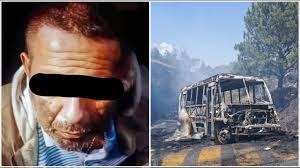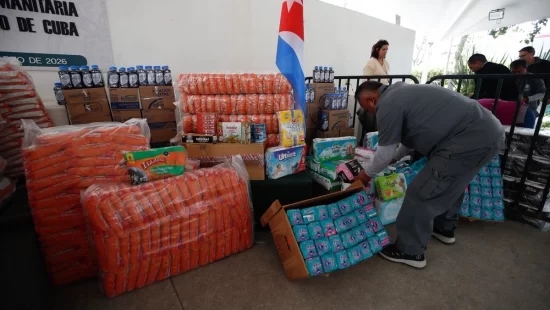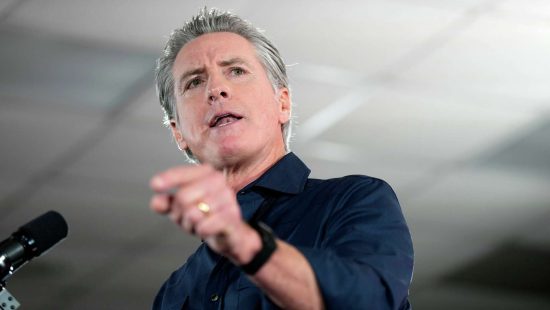“The present is broken, and there’s no vision for the future. I’ll say it again: there’s no leadership. And I insist, we need to go back to the basics and build from there. I know how to do it—with the community” .
The awareness of giving back to the community was born very early in Lou Calanche’s life.
She was always an observant child, noticing the community’s needs and knowing that something had to be done to bring about change. From a young age, in her early teens, she went door to door with one of her cousins distributing voter registration forms. She knew that it’s important to complain, but also that the only real way to make change is through voting—through the freedom to choose representatives in government.
Another experience had a radical impact on her. In a situation similar to what’s portrayed in the film Freedom Writers—where actress Hilary Swank plays teacher Erin Gruwell, who teaches at a Long Beach school and inspires her underprivileged students to study and write about their lives through city-outings and exposure to other worlds—Lou had a similar awakening.
“When I was in elementary school, there was a program in which teachers took us to different environments in other cities. I was amazed and would ask myself, ‘Why can’t we have houses like these? Why can’t our neighborhood be this clean?’ Those questions are what motivated me to work for the community, to fight so that our neighborhoods could have those same opportunities,” says Lou Calanche, a community activist and leader for more than 30 years.
This vision has motivated her throughout her life and now drives her to run for City Council District 1 in the June 2026 primaries.
“I want things to change—we can’t keep having the same problems year after year. And it’s simple—the community is only asking for the basics. That’s what a councilmember’s job should be: to get back to basics. Communities want us to work with them, to make neighborhoods safer and cleaner. Why is that so hard? Right now, due to a lack of leadership, we have a councilmember who has distanced herself from the community and from that basic work,” says the experienced activist.
“If I were in charge, transforming MacArthur Park would be possible. Involve the community, bring in many, many after-school programs. That would increase the presence of people and organizations and help reduce crime. Sadly, the situation at MacArthur Park has reached a breaking point—it’s in very poor condition. With all the controversy surrounding it, many in the neighborhood now feel they have no choice but to support putting an iron fence around the park. Some mothers told me, ‘I don’t want to take my child to school and have to see naked men, needles, people doing drugs.’ And they’re right. No mother should be put in that situation. As councilmember, I’ll create the conditions for families to enjoy that space again,” Calanche adds.
The woman who grew up in Ramona Gardens knows a thing or two about this. As a teenager, she pushed for the creation of after-school programs for girls. There weren’t any options like that in her neighborhood, so she volunteered and motivated other young women to join.
“Before, many of the girls had no options—there were no programs. They would hang out with the boys, and that would create more problems. There were a lot of gang issues. When they saw some of the girls joining, more would come. We had them play softball, other sports. That gave them options. Sometimes they would say they couldn’t attend because their moms asked them to help with chores, wash the dishes, clean the house. I would go and tell their moms that if I helped them, would they give them permission? And there I was, helping wash dishes so they could join our activities,” she says.
“Someday I’m going to have your job,” Calanche told former councilman Richard Alatorre. Now she’s close to fulfilling that prophecy.
Calanche’s voice is determined, yet open to possibilities. Her early experiences helped her build relationships with politicians and organizations and learn how to get support for her programs. But it was her perseverance and unconditional support for the community that guided her path.
Throughout the interview, she repeats a phrase that stands out: “give back to the community.” It seems as though her work is guided by a personal mission—a calling that defines her life.
We asked her about that. “You mention ‘give back to the community’ a lot. What has the community given you to make you feel that you have this debt?”
She pauses for a few seconds, then responds:
“The community has given me more than I could have ever expected. Seeing each child or teenager succeed, reach their dreams, smile because they’ve achieved their goals—it feeds me, it nourishes me. It makes me want to continue my work. This campaign isn’t about a candidate trying to become a councilmember—it’s about all of us, about our work, knowing how to do it well, and getting results,” she says.
When Lou meets with mothers of young people, they often tell her their only hope is that their children don’t end up in jail—that they aren’t arrested, and that they can get a job. She encourages them to dream bigger.
Calanche had two opportunities to walk away from all of this and possibly live a quieter and more economically stable life. Both times, she chose the community. The first time was when she was accepted to study law at Loyola Marymount. Her mother was thrilled—she had always wanted Lou to become a lawyer. But Lou turned it down; accepting would have meant abandoning the community program she had already started.
“I made a promise to the youth, and I won’t let them down,” she told her mother.
Years later, she ended up teaching Political Science to students at East L.A. College. Eventually it became a full-time position and is when she decided to return to the neighborhood where she grew up, reconnect with her community, and launch what would become Legacy L.A., a program focused on youth and families in Ramona Gardens and the surrounding areas. Currently, she is the Executive Director of ExpandLA.
“If anyone doubts that I’ll follow through on my campaign promises once I’m in City Council, this is the proof. I have no problem working in communities, with people, seeing their potential. I worked as a field deputy for then-Councilmember Richard Alatorre when I was very young. I was in Boyle Heights, walking through neighborhoods, listening to people’s needs and finding ways to solve their problems,” she adds.
When Lou meets with mothers of young people, they often tell her their only hope is that their children don’t end up in jail—that they aren’t arrested, and that they can get a job. She encourages them to dream bigger. She tells them not to give up—that if everyone works together as a community, they can achieve things they never imagined.
“You have to dream big,” she says.
Calanche has lived in District 1 for about 20 years, and with all her experience, she knows it’s time for change.
“The present is broken, and there’s no vision for the future. I’ll say it again: there’s no leadership. And I insist, we need to go back to the basics and build from there. I know how to do it—with the community,” she says.
Lou was appointed by Mayor Garcetti to the Board of Commissioners for the Housing Authority of the City of Los Angeles in 2013 and to the Board of Police Commissioners in 2020. She has also served as a commissioner for LA’s historic El Pueblo de Los Angeles monument, the Bold Vision Community Council, and helped lead The California Endowment’s 10-year Building Healthy Communities initiative in Boyle Heights.
“That’s what makes me a unique candidate. I want to live in a first-class city, and I want our communities and neighborhoods to be part of that vision,” she adds.
And it seems that the little girl who once wondered why her neighborhood looked so different from those her teachers showed her has grown into a woman who is ready to fight for those changes on the City Council.
Years ago, during a graduation ceremony for a youth program in Glassell Park, Councilmember Alatorre showed up. That bold young woman approached and introduced herself. The councilmember was surprised by how much the program attendance had grown.
“Someday I’m going to have your job,” Calanche told Alatorre.
The politician laughed. Days later, she got a call from his office. She’d been hired as a field deputy in Boyle Heights.
Perhaps the prophecy of that little girl growing up in Ramona Gardens will come true in June 2026.








